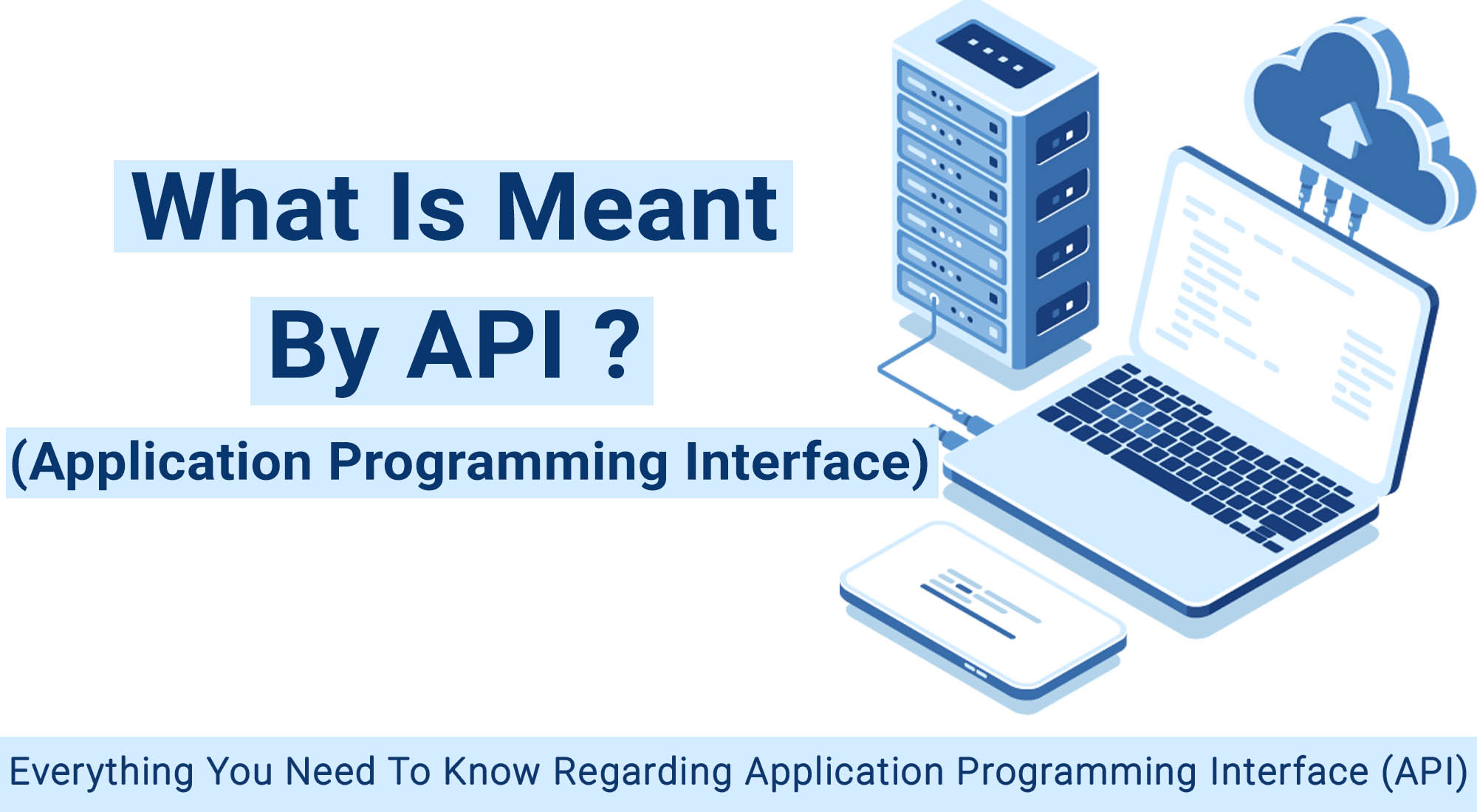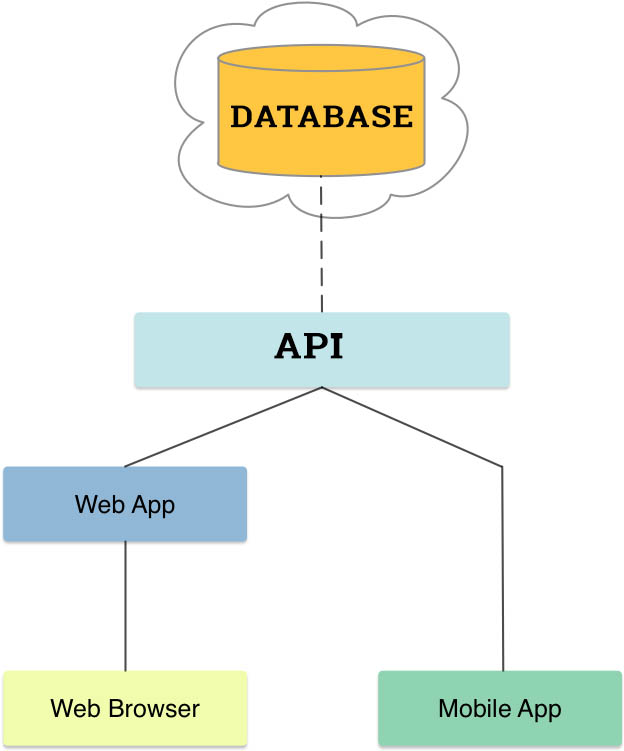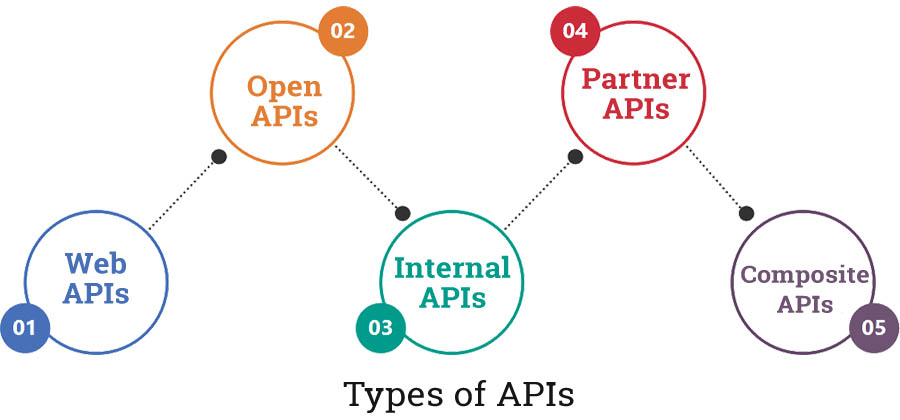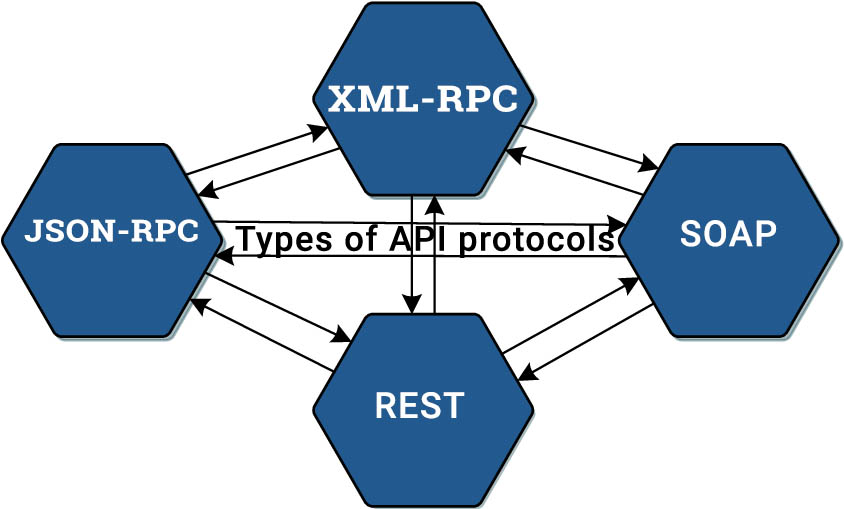What Is Meant By API
Everything You Need To Know Regarding Application Programming Interface (API)Last updated on 13 Feb 2022 by Dezven

Application Programming Interface (API) is a software program interface that lets in two interfaces to engage with each different with user intervention. API is a collection of software program capabilities and approaches. In simple phrases, API means a software code that can be accessed or completed. API is described as a code that allows distinctive software to speak and exchange statistics with each different.
In the article – “What is an API?”, you will get a complete idea about API, its working, advantages, tools, types, and many more. So, without any ado, let’s start learning.
What is meant by API ?
Full Form of API is "Application Programming Interface". It is a software program intermediary that permits two applications or interfaces to talk to each different. Each time you use an app like Facebook, ship an immediate message or check the weather on your device, you’re using an API.
A software programming interface, or API, allows companies to open up their applications’ data and functionality to external third-party developers, business partners, and internal departments within their organizations. This allows products and services to speak with each different and leverage each other’s records and capability through a documented interface. Developers do not need to realize how an API is applied; they in reality use the interface to speak with other services and products. API use has stream over the last decade, all popular web applications could not be possible without APIs.
How does API work ?
An API is a set of defined guidelines that designate how computer systems or applications communicate with each other. APIs sit down between software and the internet server, performing as an intermediary layer that strategies facts switch between systems.

Working of API is as-
- A client software starts an API name to retrieve facts—also referred to as a request. This request is processed from a utility to the internet server through the API’s Uniform Resource Identifier (URI) and includes a request verb, headers, and from time to time, a request body.
- After receiving a legitimate request, the API makes a call to the outside application or internet server.
- The server sends a reaction to the API with the asked information.
- The API transfers the statistics to the initial soliciting for utility.
While the facts transfer will range depending on the internet provider being used, this process of requests and reactions all happens via an API. Whereas a user interface is designed to be used by way of humans, APIs are designed for use with the aid of a laptop or application.
APIs offer protection by way of layout due to the fact their role as an intermediary enables the abstraction of capability between systems—the API endpoint decouples the ingesting software from the infrastructure presenting the service. API calls commonly encompass authorization credentials to lessen the risk of assaults on the server, and an API gateway can limit get entry to minimize protection threats. Also, at some stage in the change, HTTP headers, cookies, or question string parameters provide extra protection layers to the statistics.
For instance, take into account an API offered via a payment processing provider. Customers can input their card info at the front end of an application for an eCommerce store. The price processor doesn’t require to get the right of entry to the consumer’s financial institution account; the API creates a unique token for this transaction and consists of it in the API call to the server. This ensures a better level of protection towards ability hacking threats.
What is the use of API ?
Here, are some uses of API:
1) Application Programming Interface acronym API helps specific software’s to talk and change data with every other.
2) It helps you to embed content material from any website or software greater efficaciously.
3) APIs can access app components. The delivery of services and facts is extra bendy.
4) Content generated can be published mechanically.
5) It permits the consumer or a corporation to customize the content material and services which they use the most.
6) Software wishes to trade through the years, and APIs assist to count on adjustments.
Advantages of API
Automation : with APIs, computers in preference to people can manage the work. Through APIs, organizations can update workflows to make them quicker and more productive.
Application : because APIs can access the app additives, the transport of offerings and information is greater bendy.
More scope : with an API a utility layer can be created which can be used to distribute statistics and services to new audiences which can be customized to create custom person reports.
New update : an API permits all of the statistics generated at the government degree to be available to each citizen, now not only to a chosen few.
Efficiency : whilst getting the right of entry to is supplied to an API, the content material generated can be posted robotically and is to be had for every channel. It permits it to be shared and dispensed extra effortlessly.
Integration : APIs permit content to be embedded from any web page or utility greater without difficulty. This ensures more fluid facts transport and an integrated person enjoy.
Personalization : through APIs any consumer or company can personalize the content and services that they use the most.
Adaptation : wishes alternate over the years and APIs assist to count on changes. When operating with this generation, records migration is supported better, and the information is reviewed greater carefully. In quick, APIs make provider provision extra flexible.
Increases productivity : As the demand for present-day software maintains to rise, companies are seeking out short ways of prototyping and growing new merchandise.
Saves fees : The charges of building a utility fluctuate depending on numerous elements, consisting of the project’s complexity, the sort of era used, and developers’ expertise.
Improves connectivity and collaboration : Private, or inner, it improves collaboration and internal verbal exchange within a company.
Collects facts for intelligence analytics : Data within the twenty-first century is much like oil in the eighteenth century: a relatively, unexploited treasured resource.
What can you do with an API ?
API makes the life of developers easy. How? Read the following.
Let’s say you need to broaden an app for an iPhone. Apple’s iOS operating machine provides a huge wide variety of APIs—as every different operating system does—to make this less complicated for you.
If you need to embed a web browser to reveal one or more internet pages, for example, you don’t have to create software in your net browser from scratch only for your software. You use the WK WebView API to embed a Web Kit (Safari) browser item for your software.
If you need to seize photographs or video from the iPhone’s digital camera, you don’t need to write your personal digicam interface. You use the camera API to embed the iPhone’s integrated camera for your app. If APIs didn’t exist to make this clean, app developers might create their personal camera software and interpret the digital camera hardware’s inputs. But Apple’s running device builders have achieved all these difficult workings so the builders can simply use the camera API to embed a digicam, after which get on with building their app. And, while Apple improves the camera API, all of the apps that rely upon it'll take advantage of that improvement routinely.
This applies to every platform. For instance, do you need to create a dialog box on Windows? There’s an API for that. Want to help fingerprint authentication on Android? There’s an API for that, too, so you don’t have to check each specific Android manufacturer’s fingerprint sensor. Developers shouldn’t reinvent the wheel again and again.
Types of APIs

1) Web API
A Web API is a software programming interface that is found both for the web servers and a web browser.
Two types of Web APIs are 1) Server-aspect API 2) Client-facet API
Server-facet : Server-facet internet API is a programmatic interface that consists of one or extra publicly exposed endpoints to a defined request-response message gadget. It is typically expressed in JSON or XML
Client-side : A client-facet internet API is a programmatic interface that facilitates extending capability inside a web browser or other HTTP consumer.
2) Open API
Open APIs are open-source utility programming interfaces you may get access to with the HTTP protocol. Also called public APIs, they have got defined API endpoints and request and response codes. These forms of APIs are publicly available to use like OAuth APIs from Google. It has also no longer given any restriction to applying them.
3) Partner API
Partner APIs are software programming interfaces uncovered to or via strategic enterprise companions. Typically, developers can get the right of entry to those APIs in self-carrier mode through a public API developer portal. Still, they will have to finish an onboarding procedure and get login credentials to get admission to Partner APIs.
4) Internal APIs
Internal APIs are utility programming interfaces that stay hidden from external customers. These private APIs aren't to be had for customers outside of the organization and are instead intended to enhance productiveness and conversation throughout distinctive internal improvement groups.
5) Composite APIs
Composite APIs integrate a couple of records or provider APIs. These services permit developers to get admission to several endpoints in a single call. Composite APIs are useful in microservices architecture, where acting on a single venture might also require records from several resources.
Types of API protocols

1) SOAP
SOAP (Simple Object Access Protocol) is a protocol for transmitting records across networks and may be used to build APIs. SOAP is standardized using the World Wide Web Consortium (W3C) and makes use of XML to encode statistics.
SOAP strictly states how messages must be despatched and what should be covered in them. This makes SOAP APIs greater secure than REST API, although the rigid tips also lead them to greater code-heavy and harder to put in force in well-known.
For this cause, SOAP is regularly applied for inner statistics transfers that require excessive safety, and the greater flexible REST architecture is deployed extra generally anywhere else. But, one greater benefit to SOAP is that it works over any verbal exchange protocol (no longer just HTTP, as is the case with REST).
2) XML-RPC
This is a protocol that uses a specific XML layout to transfer the information as compared to SOAP that makes use of a proprietary XML format. It is also older than SOAP. XML-RPC uses minimum bandwidth and is lots simpler than SOAP.
RPC APIs might also appoint both JSON (a JSON-RPC protocol) or XML (an XML-RPC protocol) of their calls. XML is greater comfortable and more accommodating than JSON, but these protocols are in any other case comparable. Though the RPC protocol is strict, it's an extraordinarily simple and smooth way to execute code on faraway networks.
RPC APIs are restrained of their safety and competencies so you probably won’t see them as frequently as REST or SOAP APIs on the web. However, it may be used for inner systems for making simple technique requests, particularly many immediately.
3) JSON-RPC
This protocol is similar to XML-RPC but rather than sing XML format to transfer data it uses JSON.
4) REST
Today, the greatest number of web APIs are constructed on REST. REST, which stands for 'representational nation transfer', is a fixed of hints for scalable, lightweight, and clean-to-use APIs. A REST API (or “RESTful” API) is an API that follows REST tips and is used for transferring statistics from a server to a soliciting for the purchaser.
REST isn't always a protocol like the other internet services, rather, it's miles a set of architectural principles. The REST carrier wishes to have sure traits, along with simple interfaces, that are assets recognized effortlessly in the request and manipulation of resources the usage of the interface.
API testing tools
1) Postman
Postman is a plugin in Google Chrome, and it may be used for trying out API offerings. It is an effective HTTP client to test net services. For manual or exploratory testing, Postman is a good desire for checking out API.
Features of Postman :
- • With Postman, nearly all modern net API statistics may be extracted
- • Helps you to jot down Boolean exams inside Postman Interface
- • You can create a collection of REST calls and store each name as a part of a set for execution in destiny
- • For transmitting and receiving REST facts, Postman is more reliable.
Offical Website of Postman
2) Ping-API
Ping-API is API checking out that permits us to write test scripts in JavaScript and CoffeeScript to test your APIs. It will permit analyzing the HTTP API call with a whole request and reaction data.
Features of Ping-API :
- • Ping- API to schedule test every minute or hour
- • Support for writing script to set request headers, body, and URL parameters. It helps for writing script to validate response headers and body
- • Validate CRUD go with the flow and log in to Ping API
Offical Website of Ping-API
3) vREST
vREST API tool provides an online solution for testing, automatic recording, mocking and specification of HTTP APIs/REST/RESTful APIs.
Features of vREST :
- • It provides an exhaustive tool to validate your REST APIs quickly
- • Helps you to deliver zero-defect web applications with less effort in API testing
- • You can validate your web application
- • No skilled resources are required, and it can generate documentation for your API specifications.
Offical Website of vREST
Examples of APIs
a. Facebook APIs
Facebook application programming interface (API) is a provider that lets developers feature Facebook management capability in their applications.
Common Facebook capabilities for users consist of the feature to add and delete new groups and participants. Creating and retrieving group posts and single posts also are functionalities of an API provider for Facebook.
A Facebook API for developers uses HTTP POST and GET request methods to feature, retrieve, and delete information on the Facebook social media platform. Requests to get admission to records are made through the APIs endpoints. Responses are lower back in JSON format.
b. Google APIs
The Google Maps API lets builders embed Google Maps on web pages with the usage of a JavaScript or Flash interface. The Google Maps API is designed to work on cellular devices and desktop browsers.
c. YouTube APIs
YouTube’s APIs allow builders to combine YouTube movies and functionality into websites or packages. YouTube APIs encompass the YouTube Analytics API, YouTube Data API, YouTube Live Streaming API, YouTube Player APIs, and others.
CONCLUSION
The full form of API is Application Programming Interface. API is defined as a software code that helps two different software or interfaces to communicate and exchange data. API helps you to plan a business model and makes the development easier for developers. There are many types of API are 1) Open API 2) Partner API 3) Internal API 4) web API. A Web API is an application programming interface that is used either for the webserver or a web browser. There are two types of web APIs 1) Server-Side API & 2) Client-Side API. Some popular API testing tools are 1) Postman 2) Ping API and 3) vRest & 4) XML-RPC. The APIs of Facebook, Google, YouTube, and many such are crafted using different tools of API.
